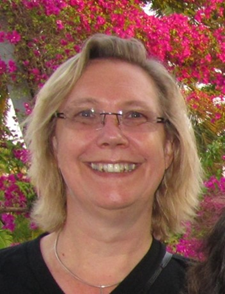Professor Evelyne de Leeuw officially starts as CHETRE’s Director on October 1st.
Posted 2 October 2015

Professor de Leeuw holds a Masters in Health Policy and Administration (University of Maastricht, The Netherlands, 1985), MPH at the University of California at Berkeley in comparative health systems research (1986) and a PhD in health political science (Maastricht, 1989).
She has been involved in WHO health promotion endeavours since the 1986 Ottawa Conference and attended all subsequent international health promotion conferences; at the fourth one (Jakarta, 1997) and eight one (Helsinki, 2013) she acted as conference rapporteur.
Since its initiation in 1986, she has been active in the international Healthy Cities movement. From 1992 to 2001 she held the position of Director of the World Health Organization Collaborating Centre for Research on Healthy Cities at the University of Maastricht. She assists WHO regionally and globally in Healthy City evaluation reporting, most recently in special issues of Health Promotion International and the Journal of Urban Health.
She has worked with local, national and international government agencies on five continents in framing, defining and implementing strategies for Healthy Cities.
Between 1992 and 1998 she served two terms as Secretary-General of the Association of Schools of Public Health in the European Region. This enabled her to contribute to public health curriculum development in Schools of Public Health and Schools of Medicine.
Evelyne currently also holds appointments as Honorary Professor, Deakin University; Visiting Professor, Université de Montréal; and Visiting Professor, Maastricht University. Previously she held professorial position in public health, health promotion and political science at the University of Southern Denmark, Deakin University and La Trobe University (Australia).
Evelyne is Editor-in-Chief of the international peer-reviewed journal Health Promotion International and considered a leading global health promotion scholar, as evidenced by her appointments to high-level research panels (e.g., the Academy of Finland, and Science Ministries in Japan and Germany).


